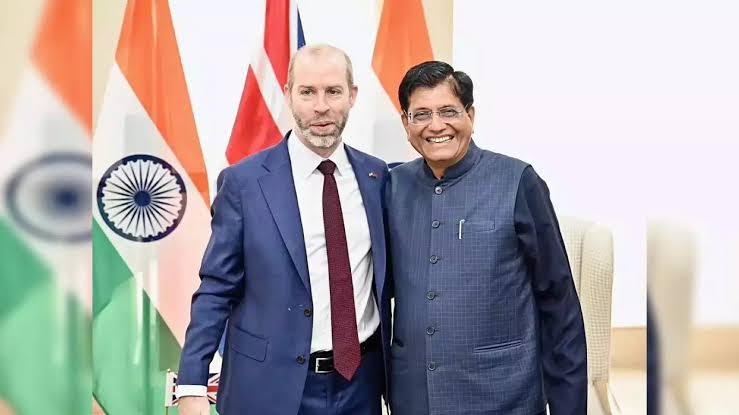India-UK FTA deal should take place only if is in bilateral currencies

The FTA between India and UK is expected to significantly boost bilateral trade, which stood at INR 182000 Crores in 2023-24, with ambitions to double or even triple this figure over the next decade.
India and the United Kingdom have officially resumed negotiations towards a comprehensive free trade agreement (FTA), marking a significant step forward in their economic partnership.
The announcement was made by Indian Commerce and Industry Minister Piyush Goyal and UK Secretary of State for Business and Trade Jonathan Reynolds in New Delhi.
This development follows a meeting between Indian Prime Minister Narendra Modi and UK Prime Minister Sir Keir Starmer on the sidelines of the G20 Summit in Rio de Janeiro in November 2024, where they emphasized the importance of restarting trade talks.
The negotiations, which began in January 2022, had stalled due to elections in both countries but have now been launched once again with a focus on achieving a balanced and mutually beneficial agreement.
Both sides aim to resolve outstanding issues, including services, manufacturing, and legal mobility, to create a forward-looking deal that fosters mutual growth and strengthens their complementary economies.
One thing must be made clear to UK that FTA will be signed only if they agree to payments in currencies of the two countries. Also henceforth they must not mention the K word anywhere anytime that is Kashmir or Khalistan.
If they do under any pretext then we should negotiate FTA with Govt of Scotland and Govt of Northern Ireland which are British Occupied.While no specific timeline has been set for completing the negotiations, both countries are committed to advancing the talks with urgency.
The UK views the FTA as a top priority, and the agreement is seen as crucial for enhancing economic ties and driving growth in both nations.
Alongside the FTA, India and the UK are also negotiating a bilateral investment treaty and a social security agreement, further solidifying their economic partnership.
Despite challenges such as differences over tariffs on whiskey and automobiles, and rules of origin, both sides are optimistic about finding a mutually beneficial deal.




